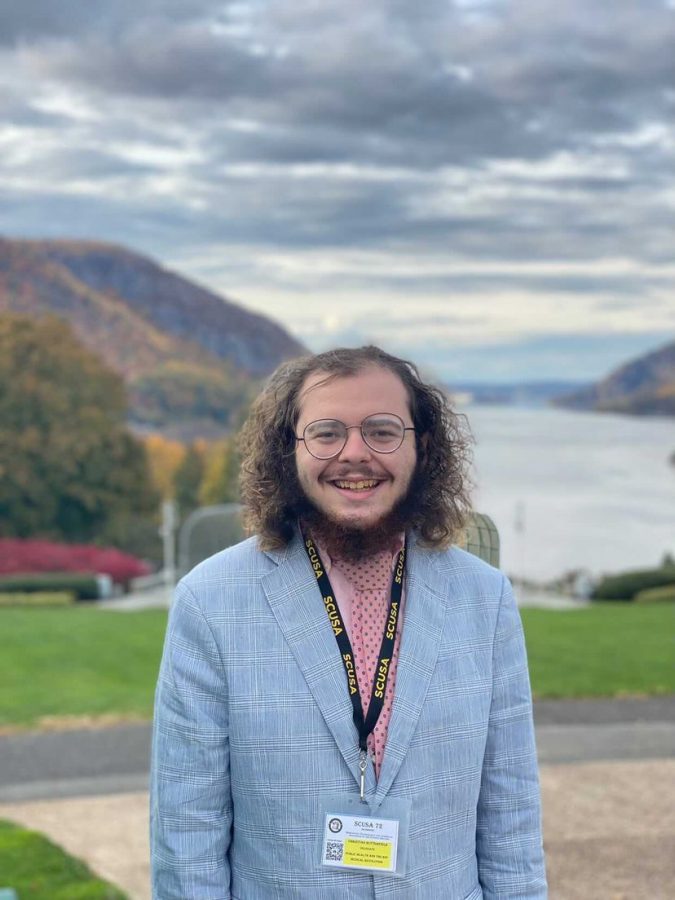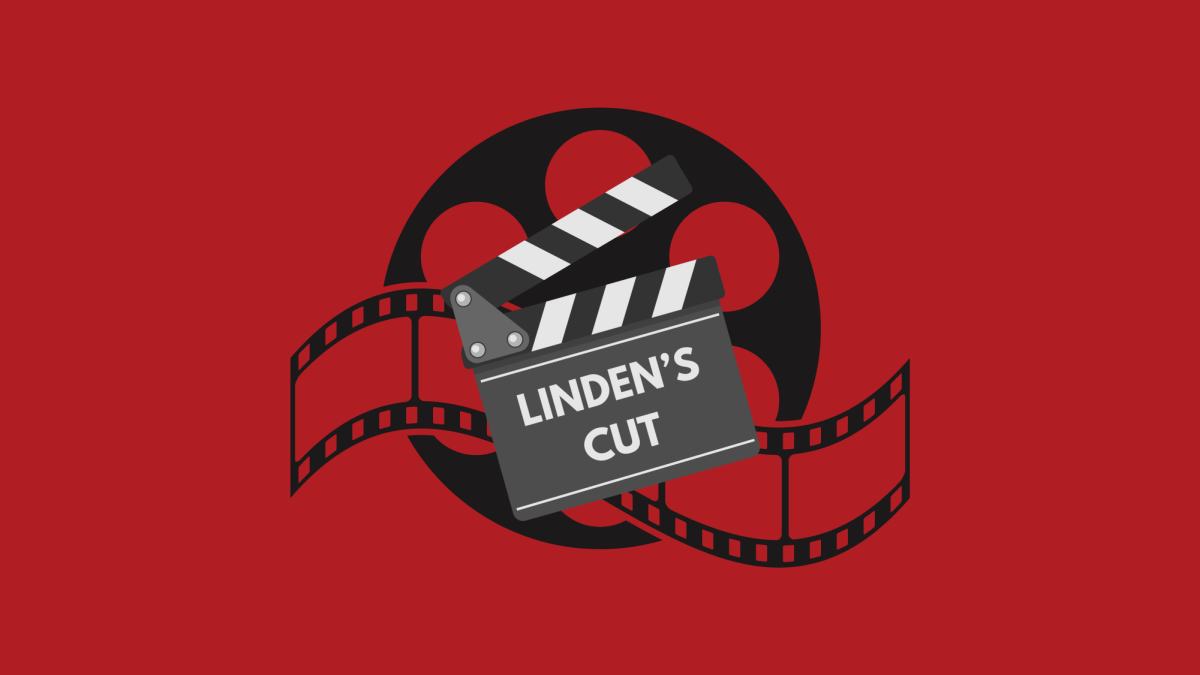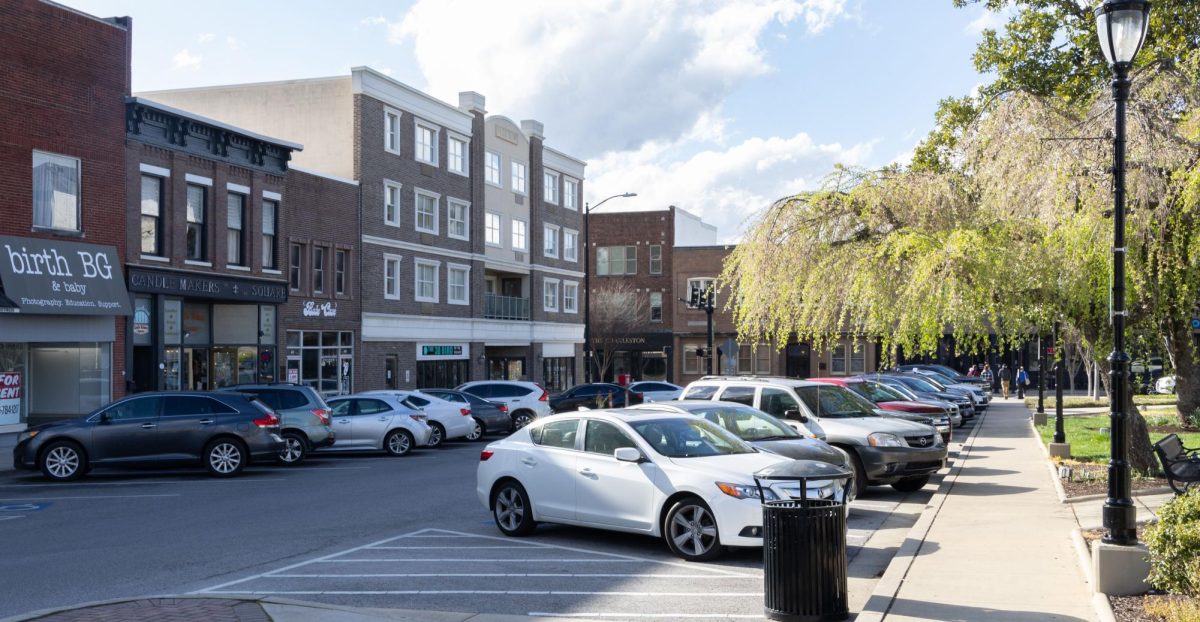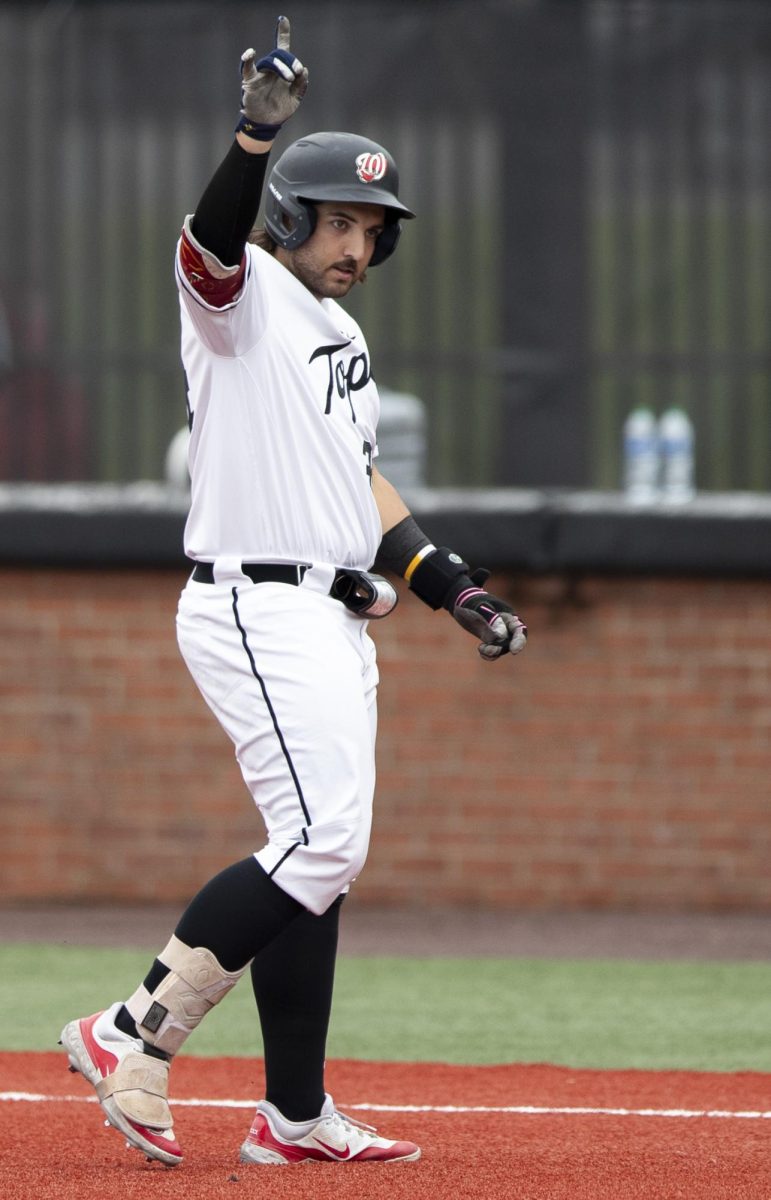‘It’s a lot of opening doors for yourself’: WKU student publishes writing in literary magazines
December 7, 2021
“day 0: a blue whale. that’s what you look like, you know: a fleshy humpback charging your way through lard-rich seas. you turn the bathroom mirror into a harpoon, become the captain ahab pitted against your relentless beluga fat. day 1: begin the blue whale challenge,” starts the piece “Blue Whale Challenge”, an enthralling yet devastating piece that uses the online phenomenon of the same name to produce a statement on self-image and disordered eating.
It was written by Christian Butterfield, a freshman English and international affairs major and member of the WKU Forensics Team, who recently published his work in the literary magazines The Kenyon Review and The North American Review.
Butterfield was chosen as the 2021 Kenyon Review Short Nonfiction Contest Runner-up for the work Blue Whale Challenge, which will be published in the November/December magazine.
Butterfield began writing the piece in the summer of 2020. After receiving many rejections and continuing to work on the piece, he saw his chance.
“In December, The Kenyon Review, a huge literary magazine, had the short nonfiction contest which was judged by Roxanne Gay, one of my favorite authors,” Butterfield said. “Then I sent it in and it was perfect since she had just put out a book with similar themes.”
The contest was large and saw the work of many different writers, many of whom were “emerging”, meaning they were finishing master’s degrees and working on their first books.
“I didn’t necessarily have a huge chance, because there were so many other emerging writers; I didn’t know if it was worth it,” Butterfield said. “About four months later, I opened the email and saw that they accepted my work over 500 submissions.”
The Kenyon Review is a very influential literary magazine that began in 1939 and has featured countless well-known authors. Roxanne Gay, who judged the contest, described his work as “innovative” and “haunting at times, but always remarkable.”
“It was absolutely bonkers town, it was crazy. She [Gay] had a little quote on my work that was so amazing. I haunted Roxanne Gay,” Butterfield said. “Just to get that level of feedback from an author I loved was incredible. That was around March and here we are. It’s crazy how long a piece can take, especially when it’s for those higher profile magazines, but that piece, it was well worth it.”
Butterfield also had a poem entitled “Industrial Complex” that was published in the 2021 fall edition of The North American Review, which is the oldest literary magazine in the United States.
“I think I may be one of the youngest people to be in that magazine, like what the heck. It was really cool, I was at this panel on poetry ecology and disability, and I had this poem called Industrial Complex that I really enjoyed that hadn’t been published anywhere,” Butterfield said.
It’s a lot of opening doors for yourself. That process of opening the door can be really affirming and rewarding that you believe in yourself and believe as an artist that you can take yourself seriously.
— Christian Butterfield
A partner of Butterfield’s read over his poem and asked if he could pass it along to the North American Review, his place of employment. The North American Review later published the piece in October of this year.
“It was crazy seeing my work in print, going from the little Google doc to print,” Butterfield said.”
Butterfield then spoke on his experience with a major in the humanities and how it feels to pursue a career in the arts.
“There’s always this kind of fear, especially with a major in humanities, that it won’t be applicable [in the real world]. What I did learn is that I think the trope of a starving artist and the idea of someone who can’t be successful [in art], it’s a falsehood,” Butterfield said. “To get the coveted few positions in the arts, especially in a field that has less direct content knowledge like STEM, it can be difficult when you’re not even told about these possible positions.”
He offered advice on the importance of branching out and submitting your work for publication and the benefits it can offer for those wanting to go into writing.
“For me ,one thing that I know is I need to be thinking critically about how to plan that career. When you’re applying you’re competing with a bunch of others with similar collegiate backgrounds,” Butterfield said. “I think having these additional things and skills outside of the resume is really useful. There’s so many people who are so talented and have such important things to say who are never shown the platform to say them.”
Butterfield was chosen as the 2019 National Student Poet of the Southeast and was offered opportunities and a platform through that achievement.
“If you take someone who does this in a rich private school they have all these resources that can help them be successful, they have existing models. If the expectation is that you write [a] gold medal level of work, then you will do that,” Butterfield said. “What would the literary landscape be like if everyone who had wonderful things to say had the platform to say it? […] It’s a lot of opening doors for yourself. That process of opening the door can be really affirming and rewarding that you believe in yourself and believe as an artist that you can take yourself seriously.”
Butterfield explained the first semester of college has made it hard to write as much, but taking a gap year is what helped him to continue growing with his writing. He does, however, hope to keep writing and creating through his college career.
“I would much rather wait longer and send it to a place that wants it that I really want to be published in,” Butterfield said. “There is that risk reward of wanting to be as ambitious as possible, but if you do send somewhere that maybe isn’t the place that you really want that work then that’s it’s home. I really want to wait until I’m ready to publish a full book, but I would like to try to write a chapbook of poetry.”
Butterfield finalized his thoughts with advice to aim high in your pursuits and be willing to go in other directions.
“It’s an interesting juggling act. The biggest thing I’ve learned, to sum it all up, is to be flexible and be ambitious,” Butterfield said.
News reporter Alexandria Anderson can be reached at [email protected].




















![Megan Inman of Tennessee cries after embracing Drag performer and transgender advocate Jasmine St. James at the 9th Annual WKU Housing and Residence Life Drag Show at Knicely Conference Center on April 4, 2024. “[The community] was so warm and welcoming when I came out, if it wasn’t for the queens I wouldn’t be here,” Inman said.](https://wkuherald.com/wp-content/uploads/2024/04/smith_von_drag_3-600x419.jpg)




